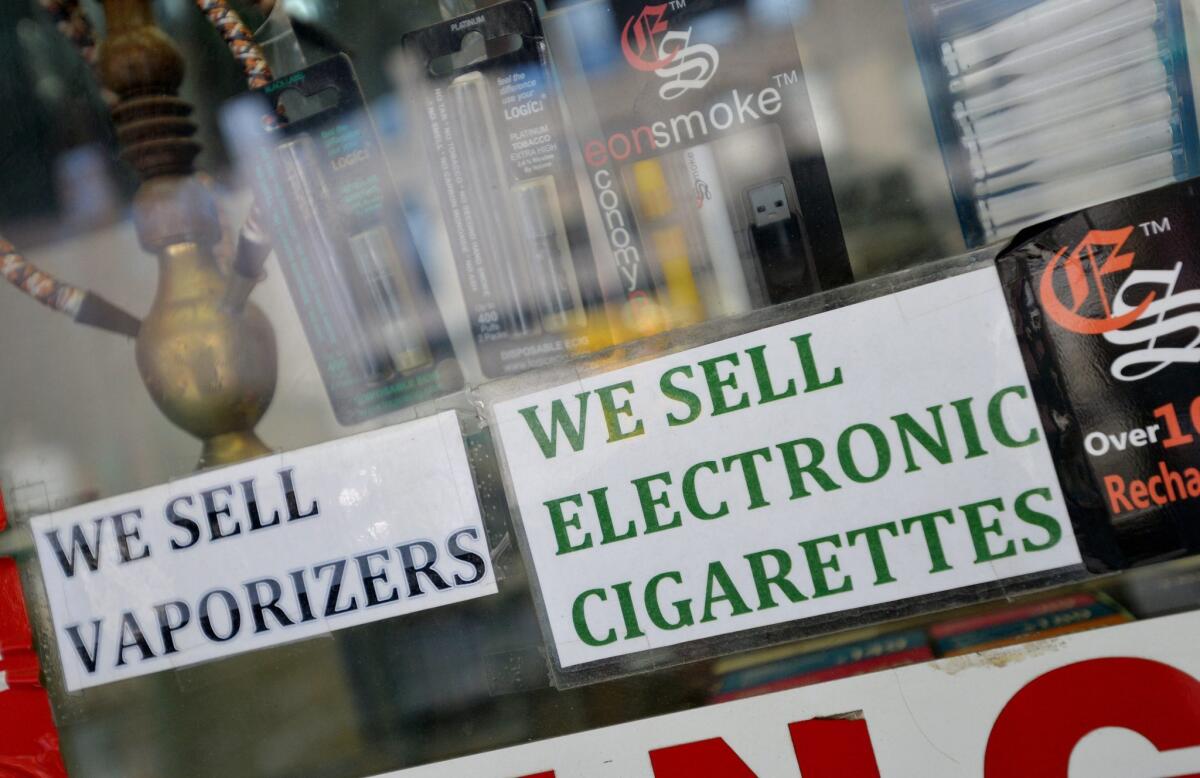Editorial: Regulating e-cigarettes: It’s about time

It has taken far too long for the U.S. Food and Drug Administration to impose regulations on e-cigarettes: More than three years have passed since it announced its intention to do so. During that time, the devices have caught on with teenagers, whose use of them doubled from 2011 to 2012. And the rules proposed Thursday will not be finalized for at least another year.
The new regulations are appropriately strong in many ways, banning sales to minors and requiring the disclosure of ingredients as well as evidence for any marketing claims that e-cigarettes are healthier than traditional cigarettes. But more is needed.
To the extent that they are used by people who would otherwise smoke regular cigarettes, e-cigarettes might save tens of thousands of lives each year. That’s because the devices deliver the nicotine that smokers crave via vapor, without the smoke that causes cancer and other illnesses.
On the other hand, because the vapor doesn’t irritate the throat and lungs the way regular tobacco products do, e-cigarettes might serve as a gateway to smoking for teenagers. Recent sales figures among minors indicate that is already happening. The lack of research on e-cigarettes is a major impediment to shaping meaningful regulations.
The FDA did not overreach. It did not attempt to restrict the advertising of e-cigarettes on television. At the same time, it plans to ensure that e-cigarette companies cannot make lavish claims that their product is less dangerous than cigarettes or that e-cigarettes can help smokers quit the habit, unless they provide evidence for those claims.
More important, the rules would ban sales to minors. But because advertising is considered a matter of free speech, the FDA did not prohibit the marketing of the devices to teenagers. Before it can do that, the agency must have stronger evidence that e-cigarettes harm young people. That’s a shame, because the manufacturers have been advertising in magazines popular with teens and sponsoring rock concerts.
Above all, the FDA and the National Institutes of Health should make research on e-cigarettes a top priority. Sales are soaring, and only with better evidence can rules be crafted that recognize whatever health advantages e-cigarettes might offer while minimizing possible downsides.
More to Read
A cure for the common opinion
Get thought-provoking perspectives with our weekly newsletter.
You may occasionally receive promotional content from the Los Angeles Times.






